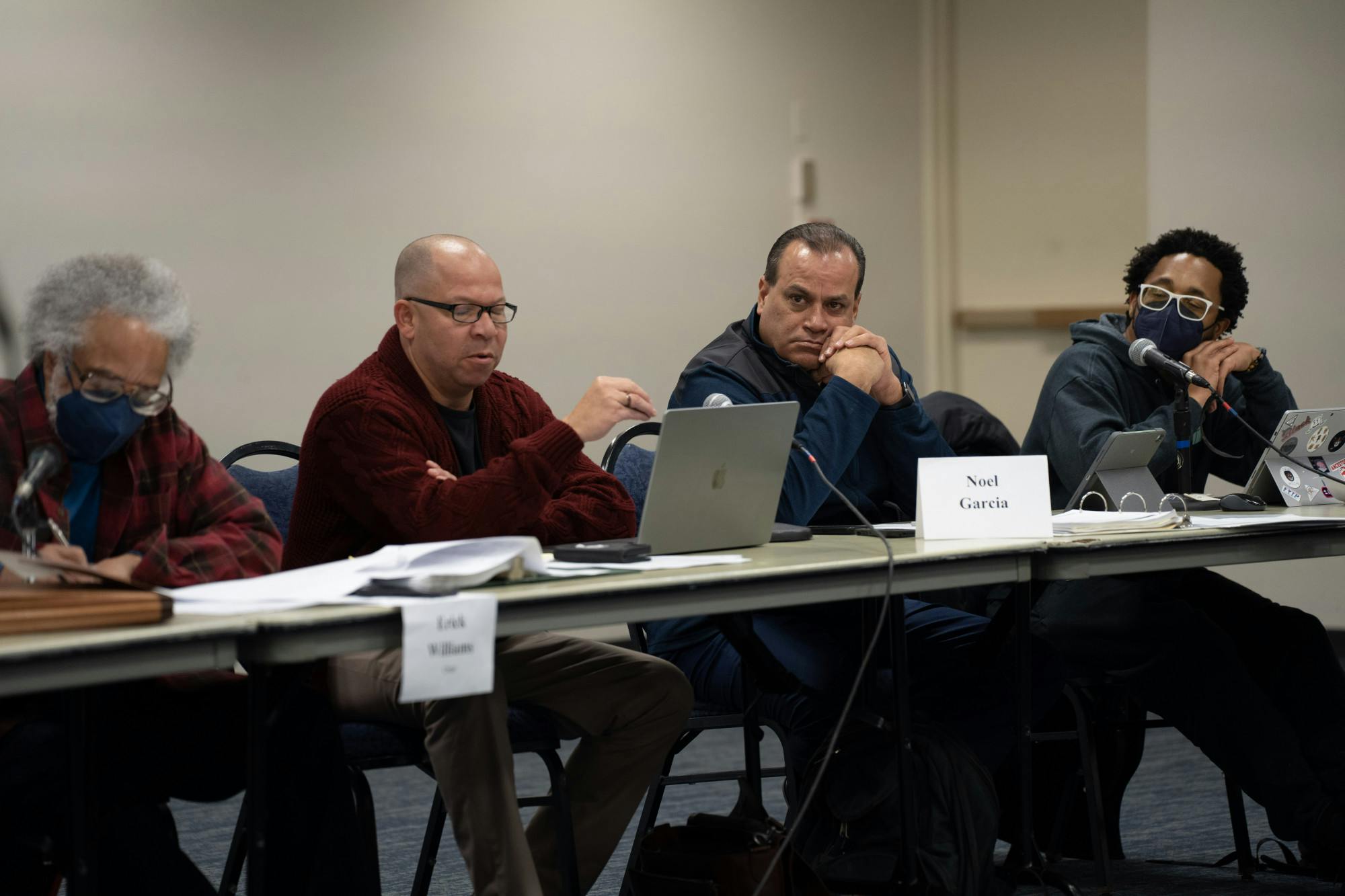The East Lansing Independent Police Oversight Commission convened Wednesday, March 2 to discuss the April 25 shooting, in which two East Lansing Police Department officers shot at DeAnthony VanAtten, a 21-year-old Black male in a Meijer parking lot.
The two officers did not face charges as Michigan Attorney General Dana Nessel said the officers’ use of force was justified.
Commissioner Robin Etchison said when the commission has the opportunity to thoroughly investigate the April 25 shooting, they will reference the commission's policies and procedures concerning use-of-force scenarios and reports, with the intent of preventing such incidents from occurring in the future.
Commissioner Ernest Conerly said the report should include preliminary work and thoughts conducted by the commission despite being denied the full report by Michigan State Police — the agency responsible for the investigation of the shooting.
“I think it’s pertinent to report about what we did,” Conerly said. “We went as far as we could go as a commission.”
In addition, Etchison said officers should always submit end-of-shift reports, especially when they use force during their work shift.
The commission passed a motion designating a March 29 public hearing on best practices in police use-of-force policy as a special commission meeting.
The hearing is sponsored by the commission and the Michigan State University College of Law. Several professionals will speak at the hearing, including use-of-force policy experts, an author of an evidence-based, use-of-force publication and a Black Lives Matter activist.
“I think it’ll be a really interesting way to start this discussion by very personal people,” Commission Vice Chair Chris Root said. “We don’t usually have the opportunity to do so.”
Root said there will be at least two events regarding use-of-force policies. She said the second event, which is currently unplanned, will be more relevant to the commission’s ongoing discussion with the ELPD.
“The second event will be more local perspective about the specifics of the ELPD’s use-of-force policy,” Root said.
Washtenaw County Sheriff Jerry Clayton conducted a special presentation on racially biased 911 calls, in which he discussed the need for specific criteria as it pertains to dispatching officers to racially charged, emergency scenarios.
Clayton recommended the implementation of standards within dispatcher training that would distinguish whether 911 calls are racially motivated. He said in the event of a clear, racially biased 911 call, officers should not be dispatched to the scene to prevent escalation.
“The historical experience with law enforcement and the Black community both impacts the African American culture, the larger US culture and, quite frankly, shapes the view that African Americans have on policing and the view that society has of African Americans,” Clayton said. “It’s part of our history and we need to understand it to know it.”
The commission will meet again on April 5 at the Hannah Community Center.







